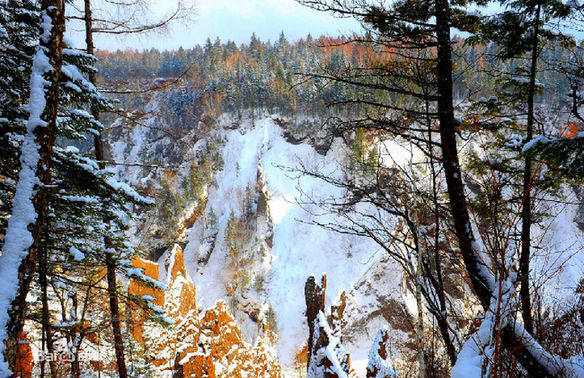Changbai nature reserve initiative sparks debate
 0 Comment(s)
0 Comment(s) Print
Print E-mail Xinhua, September 16, 2013
E-mail Xinhua, September 16, 2013
China's Changbai Mountain Nature Reserve is currently at the center of an ecological protection debate after revealing ambitions to lead a new international organization, the World Protected Areas Alliance.
Some 150 ecologists and nature reserve managers from China and 15 countries and regions remain divided on the mission and operations of the proposed organization after a feasibility discussion Sunday afternoon in the Changbai Mountain Nature Reserve. The talks were a prelude to the First Changbai Mountain International Ecological Forum that opens on Monday.
 |
|
A file photo of Changbai Mountain Nature Reserve. |
Delegates plan to continue discussion of the issue during the two-day forum and give feedback on Tuesday to the forum's organization committee based on a proposal prepared by the Changbai Mountain Nature Reserve Management Bureau.
Deputy Director Cai Hongwei of the Management Bureau of the Changbai Mountain Nature Reserve in northeast China's Jilin Province said that the initiative aims to strengthen communication and cooperation among protected areas worldwide and improve nature reserve management and social influence.
"I hope this forum can bring new ideas to global ecological protection and become a milestone in the exchange and cooperation of world protected areas, with concerted efforts and support from the world's leading ecologists and global ecological organizations," said Cai.
Xie Yan, an associate research professor with the Institute of Zoology under the Chinese Academy of Sciences charged with leading the project, detailed the draft work plan for the alliance.
"More than 10 percent of land is covered by protected areas worldwide. However, there is a lack of long-term cooperation mechanisms among protected areas, many advanced concepts and technologies have not been widely promoted, and the joint forces of scientific research and conservation have not been applied," she said.
"Therefore, it is crucial to establish the World Protected Areas Alliance for promoting information exchange and sharing in research, conservation and management of protected areas," she added.
DEBATE
Dr. John Mackinnon, a senior biodiversity expert and honorary professor at the Durrell Institute of Conservation and Ecology at the University of Kent, U.K, worried that the China-initiated alliance might be "an overlap" with existing international organizations such as the World Commission for Protected Areas under the International Union for Conservation of Nature (IUCN), the world's oldest and largest global environmental organization.
"I am of two minds," he said. "If you feel there is a need to make something new, that means you are not happy with what exists. There is an international organization for protected areas. Maybe we'd better look at how we could improve that before having a new one. I don't want to see a competition between any new alliance and the existing IUCN commission."
Another reason Mackinnon is "not firmly decided yet" is that he thinks the IUCN has a very weak presence in China. "They are not really participating in that very much. They have a very small office in Beijing and they don't offer a lot. So maybe China wants to do something else, but they want to do it big and do it globally as well," he said.
Xie Yan said during the discussion that the existing protection systems, including the IUCN's World Commission of Protected Areas, are top-down structures that are academic in nature and function as brain trusts.
"The proposed alliance could focus on governance of protected areas and act as a hands-on implementer. It still needs the intellectual support of existing organizations, but at the same time could facilitate better implementation at the local level," she said.
"My biggest concern is that we have a very fancy talk here and end up nowhere if the program is overstretched," said Wang Ding, Secretary General of the Chinese National Committee for Man and Biosphere (MAB) Program, a member of the UNESCO's World Network of Biosphere Reserves.






Go to Forum >>0 Comment(s)